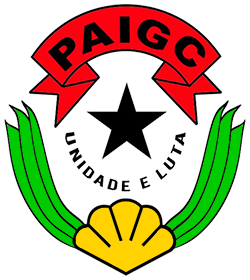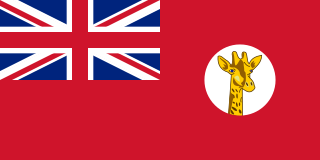Guinea-Bissau was dominated by Portugal from the 1450s to the 1970s; since independence, the country has been primarily controlled by a single-party system.
The Republic of Benin was formed in 1960 when the colony of French Dahomey gained independence from France. Prior to this, the area that is now the Republic of Benin was divided largely between two coastal kingdoms, Dahomey and Porto-Novo, and a large area of various tribes in the north. The French assembled these various groups together into the colony of French Dahomey, which was part of the various colonies of French West Africa from 1904 until 1960. In the independence era, the republic was extremely unstable for the first decade and a half of existence, with multiple governments and multiple military coups. In 1972, Mathieu Kérékou led a military coup deposing the Presidential Council and appointing himself as the head of state, a position he held until 1991 when the country returned to multiparty elections. Since that point, the state has held multiple presidential and legislative elections and a number of different parties have become important.
A one-party state, single-party state, one-party system, or single-party system is a type of state in which one political party has the right to form the government, usually based on the existing constitution. All other parties are either outlawed or allowed to take only a limited and controlled participation in elections. Sometimes the term de facto one-party state is used to describe a dominant-party system that, unlike the one-party state, allows democratic multiparty elections, but the existing practices or balance of political power effectively prevent the opposition from winning the elections.

The Kenya African National Union (KANU) is a Kenyan political party that ruled for nearly 40 years after Kenya's independence from British colonial rule in 1963 until its electoral loss in 2002. It was known as Kenya African Union (KAU) from 1944 to 1952.KAU was banned by the colonial government from 1952 to 1960.It was re-established by James Gichuru in 1960 and renamed to KANU on 14 May 1960 after a merger with Tom Mboya's Kenya Independence Movement.

SWAPO, formerly the South West African People's Organisation and officially known as SWAPO Party of Namibia, is a political party and former independence movement in Namibia. It has been the governing party in Namibia since the country achieved independence in 1990. The party continues to be dominated in number and influence by Ovambo people.

Zimbabwe Rhodesia was an unrecognised state that existed from 1 June 1979 to 12 December 1979. Zimbabwe Rhodesia was preceded by an unrecognised republic named Rhodesia and was briefly followed by the re-established British colony of Southern Rhodesia, which according to British constitutional theory had remained the proper government after Unilateral Declaration of Independence (UDI) in 1965. About three months later, the re-established colony of Southern Rhodesia was granted internationally recognised independence as the Republic of Zimbabwe.

The People's Movement for the Liberation of Angola, for some years called the People's Movement for the Liberation of Angola – Labour Party, is a political party that has ruled Angola since the country's independence from Portugal in 1975. The MPLA fought against the Portuguese army in the Angolan War of Independence of 1961–74, and defeated the National Union for the Total Independence of Angola (UNITA) and the National Liberation Front of Angola (FNLA), two other anti-colonial movements, in the Angolan Civil War of 1975–2002.

Venda was a Bantustan in northern South Africa, which is fairly close to the South African border with Zimbabwe to the north, while to the south and east, it shared a long border with another black homeland, Gazankulu. It is now part of the Limpopo province. Venda was founded as a homeland by the South African government for the Venda people, speakers of the Venda language. The United Nations and international community refused to recognise Venda as an independent state.

The Mozambique Liberation Front (FRELIMO), from the Portuguese Frente de Libertação de Moçambique is the dominant political party in Mozambique. Founded in 1962, FRELIMO began as a nationalist movement fighting for the independence of the Portuguese Overseas Province of Mozambique. Independence was achieved in June 1975 after the Carnation Revolution in Lisbon the previous year. At the party's 3rd Congress in February 1977, it became an officially Marxist–Leninist political party. It identified as the Frelimo Party(Partido Frelimo).

Bishop Abel Tendekayi Muzorewa served as Prime Minister of Zimbabwe Rhodesia from the Internal Settlement to the Lancaster House Agreement in 1979. A United Methodist Church bishop and nationalist leader, he held office for only a few months.

The African Party for the Independence of Guinea and Cape Verde is a political party in Guinea-Bissau. Originally formed to peacefully campaign for independence from Portugal, the party turned to armed conflict in the 1960s and was one of the belligerents in the Guinea-Bissau War of Independence. Towards the end of the war, the party established a Marxist–Leninist one-party state, which remained intact until multi-party democracy was introduced in the early 1990s. Although the party won the first multi-party elections in 1994, it was removed from power in the 1999–2000 elections. However, it returned to office after winning parliamentary elections in 2004 and presidential elections in 2005, since which it has remained the largest party in the National People's Assembly.

The United Federal Party (UFP) was a political party in the Federation of Rhodesia and Nyasaland.

Elections in Namibia gives information on election and election results in Namibia.

The unicameral National Assembly is the legislative body of the Republic of Cape Verde.

General elections were held in Kenya on 27 December 2002. They saw the end of the long-standing dominance of the Kenya African National Union, which had governed the country since independence in 1963, including 23 years as the only legal party. Mwai Kibaki of the National Rainbow Coalition was elected president, while the National Rainbow Coalition won a majority in the National Assembly.

The People's Republic of Angola was the self-declared socialist state which governed Angola from its independence in 1975 until 1992, during the Angolan Civil War.

Tanganyika was a territory administered by the United Kingdom from 1916 until 1961. The UK initially administered the territory as an occupying power with the Royal Navy and British Indian infantry seizing the territory from the Germans in 1916. From 20 July 1922, British administration was formalised by Tanganyika being created a British League of Nations mandate. From 1946, it was administered by the UK as a United Nations trust territory.

General elections were held in Northern Rhodesia on 20 and 21 January 1964. There were two voter rolls for the Legislative Council, a main roll that elected 65 seats, and a reserved roll that elected 10. Africans elected the main roll, whilst Europeans elected the reserve roll. Other ethnicities were allowed to choose which roll to be part of. The United National Independence Party won the elections, taking 55 of the common roll seats. Its leader, Kenneth Kaunda became Prime Minister, leading the country to independence in October that year, at which point he became President. Voter turnout was 94.8% for the main roll and 74.1% for the reserved roll.

General elections were held in Zambia on 19 December 1968 to elect the National Assembly and President. The first post-independence polls saw incumbent Kenneth Kaunda retain his post as president, whilst his United National Independence Party, the only party to field candidates in all 105 constituencies, won 81 of the 105 seats in the National Assembly. Voter turnout was 82.5% in the parliamentary election, but 87.1% in the presidential election.















